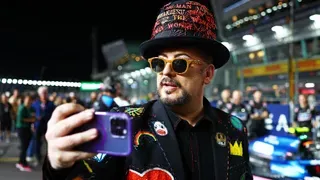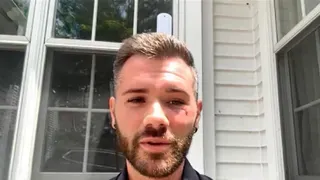October 23, 2014
Appeal Sought in Puerto Rico Gay Marriage Case
Bobby McGuire READ TIME: 3 MIN.
SAN JUAN, Puerto Rico -- A federal court judge has rejected an attempt to end a ban on same-sex marriages in Puerto Rico, saying political order itself depends on traditional marriage and deriding the logic of courts that have overturned such bans. The five gay couples who filed the suit will appeal, their attorney said Wednesday.
The couples had challenged the constitutionality of several local laws, including a 1902 code that defines marriage as between a man and a woman.
But in a ruling issued late Tuesday, U.S. District Court Judge Juan Perez-Gimenez upheld the laws, stating people and legislators, not judges, should debate the issue.
"Because no right to same-gender marriage emanates from the Constitution, the Commonwealth of Puerto Rico should not be compelled to recognize such unions," he wrote in the 21-page ruling. "Instead, Puerto Rico, acting through its legislature, remains free to shape its own marriage policy."
National gay rights group Lambda Legal is representing the group, which includes two couples who seek to marry in Puerto Rico and three couples who live on the island and married elsewhere.
"We were obviously surprised by the decision," Lambda Legal attorney Omar Gonzalez-Pagan said by phone. "Close to 50 court decisions have disagreed with that assessment, including four circuit courts of appeals." He said they would file an appeal within days.
More than 30 states have recognized same-sex unions, many after an Oct. 6 U.S. Supreme Court decision that refused to hear appeals from states seeking to defend gay marriage bans.
Puerto Rico is the only jurisdiction under the First Circuit Court of Appeals that bans same-sex marriages, Gonzalez-Pagan said.
Perez-Gimenez questioned the actions of more than two dozen judges on the U.S. mainland who have struck down state same-sex marriage bans following a U.S. Supreme Court ruling known as U.S. vs. Windsor. That ruling struck down a federal provision that denied several tax, health and veterans benefits to legally married gay couples, though it did not declare gay marriage legal nationwide.
Perez-Gimenez said the Windsor case only serves to reaffirm states' authority over marriage.
"Windsor does not - cannot - change things," he wrote. "It takes inexplicable contortions of the mind or perhaps even willful ignorance ... to interpret Windsor's endorsement of the state control of marriage as eliminating the state control of marriage."
Perez-Gimenez wondered in his ruling whether laws prohibiting polygamy and incestuous relations will be questioned now, saying that traditional marriage is essential to society itself.
"Ultimately the very survival of the political order depends upon the procreative potential embodied in traditional marriage," he said. "Those are the well-tested, well-proven principles on which we have relied for centuries."
The legal fight in Puerto Rico began in March, when attorney Ada Conde, 53, who married her longtime partner in Massachusetts, filed a federal lawsuit seeking to have their marriage recognized in the U.S. territory, where lawmakers last year approved four measures in favor of the gay community, including one that extends a domestic violence law to gay couples. However, the push for same-sex marriages and recognition of those marriages has met strong resistance.
Johanne Velez, a 49-year-old attorney who is one of the plaintiffs, told The Associated Press in an interview that she and her partner, whom she married in New York in 2012, are seeking equal rights. They want to adopt, but Velez said she has been forced to initiate the process by herself because Puerto Rico does not allow unmarried couples to adopt. She said she was disillusioned by the ruling.
"The judge adopted an extremely traditional and somewhat sexist perspective about a woman's role in society," she said.






